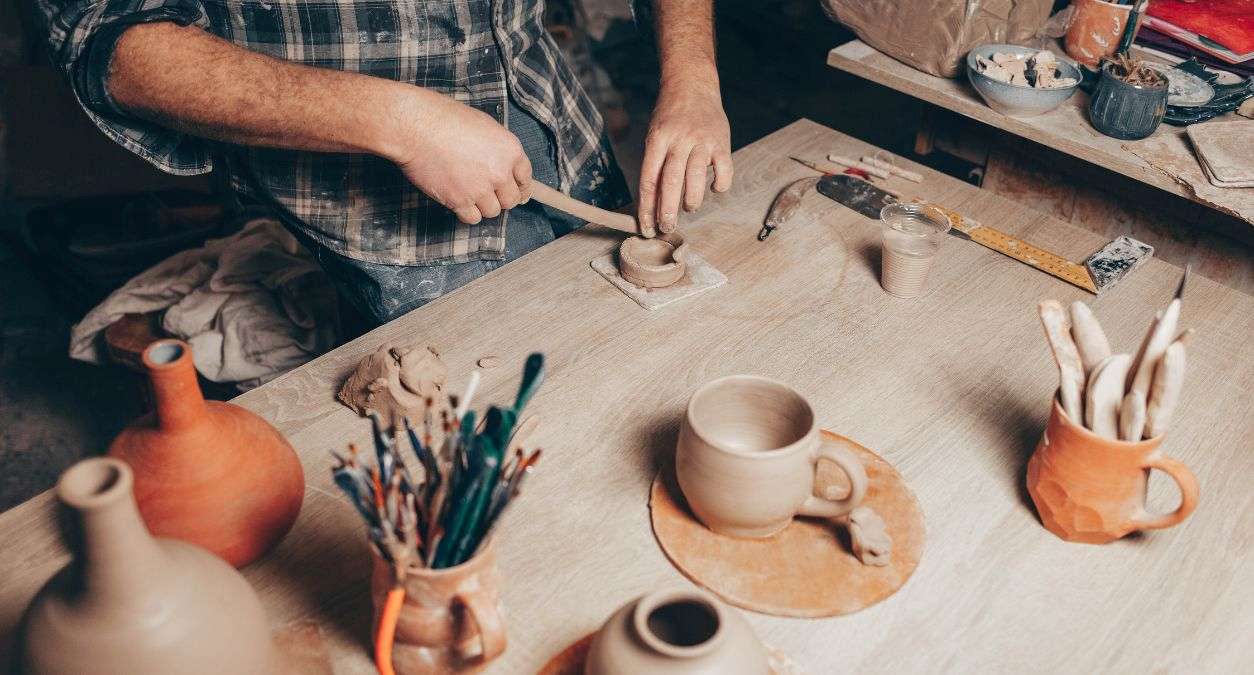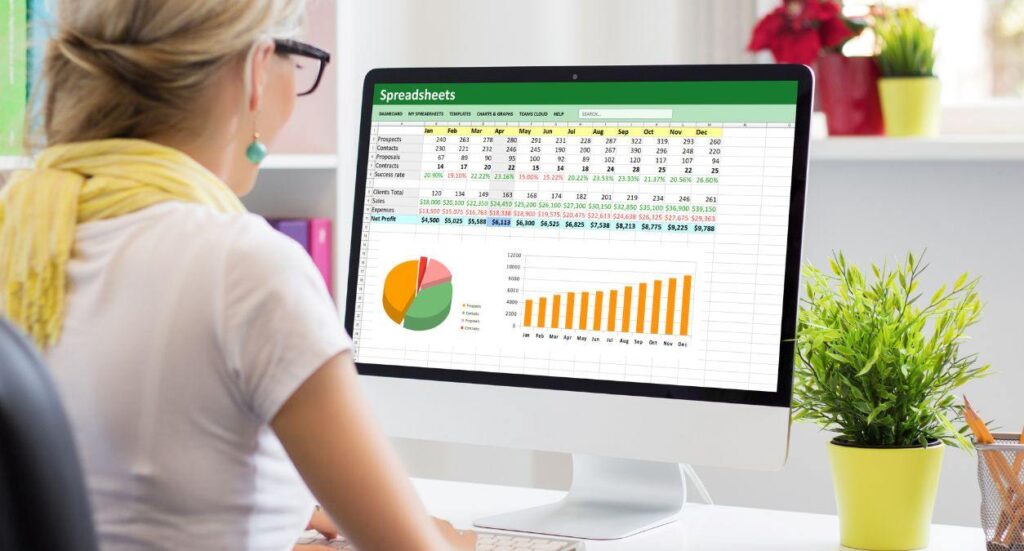Table of contents
Table of contents
If you’ve ever found yourself daydreaming about making and selling your own handmade ceramics, you’re not alone. Pottery has grown in popularity as both a hobby and a full-fledged business, especially with more people learning how to do pottery at home. But turning that creative passion into a profitable venture involves more than just getting your hands dirty – you need the right tools, materials, and setup.
In this guide, we’ll explore everything from the essential equipment to business basics, giving you a practical roadmap for starting your own pottery business in the UK.
Getting started: from hobby to business
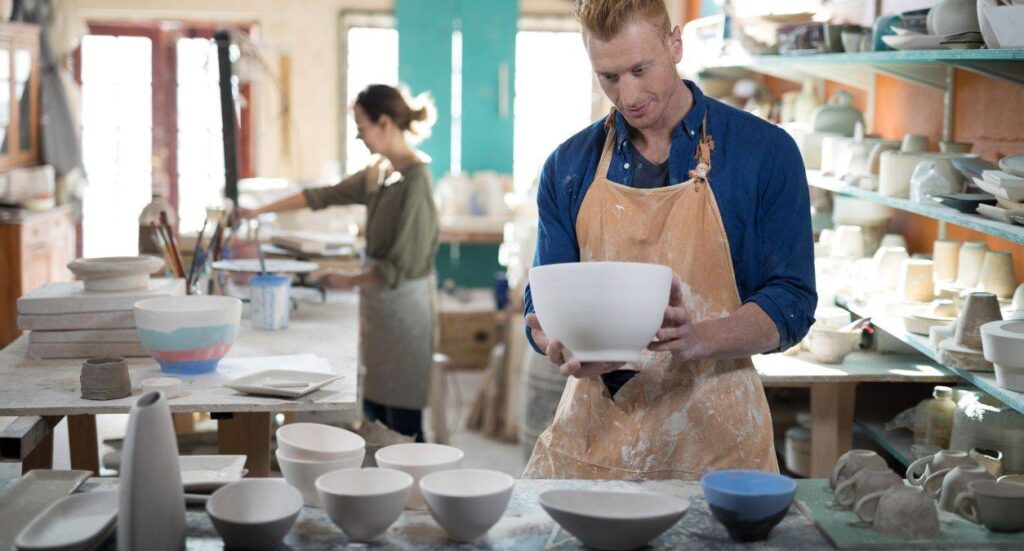
Before diving into tools and prices, it’s worth asking yourself a few key questions:
- Are you planning to work from home or rent a studio space?
- Do you want to sell locally, online, or both?
- Are you focusing on wheel-thrown pottery, hand-built work, or a mix?
The answers will shape what equipment you need and how much you should invest early on. That said, whether you’re making a few mugs at the kitchen table or setting up a full ceramics studio, there are some basics every potter needs to get started.
Setting up your pottery space
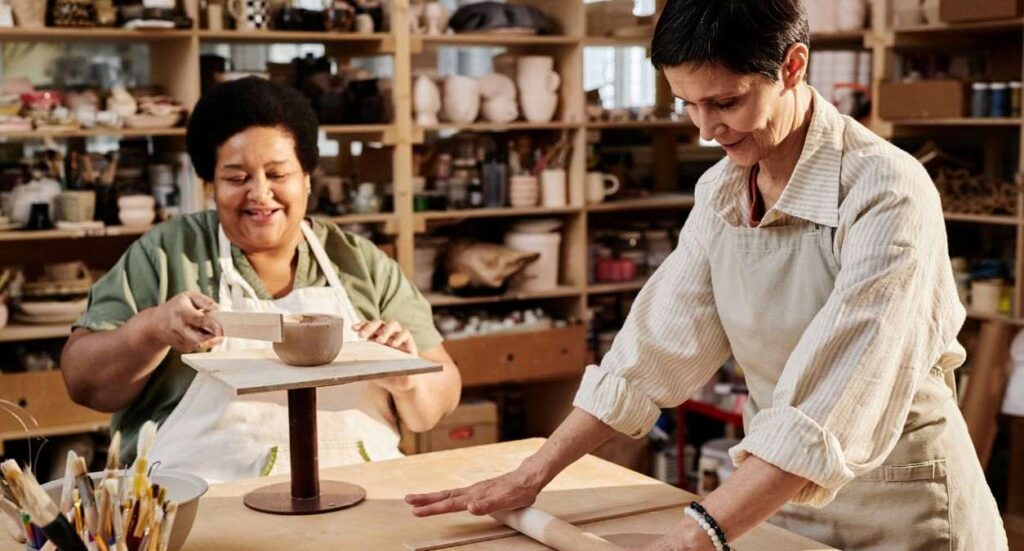
A dedicated workspace is one of the most important foundations for your pottery business. Many potters begin from home – using a garage, spare room, or even a garden shed. No matter the size of your space, you’ll need to think about:
- Ventilation: Kilns produce heat and fumes, so good airflow is essential.
- Water access: Cleaning tools and working with clay requires easy access to water.
- Durable surfaces: Clay is messy – choose surfaces that can withstand water, dust, and wear.
- Storage: Plan for shelves or racks to dry, store, and display your pieces.
Once your space is sorted, it’s time to gather the tools of the trade.
What equipment do you need for pottery?
Let’s break down the core equipment and materials needed to get your pottery business off the ground.
Pottery Wheel (optional but popular)
Not all pottery requires a wheel – you can hand-build, coil, or slab your creations. But if you want to make bowls, mugs, or symmetrical vases, a pottery wheel is a worthwhile investment.
- Cost: £300 to £2,000
- Good to know: Start with a second-hand wheel if you’re unsure – websites like eBay or local Facebook groups often have great deals.
Kiln (essential)
No matter your style, a kiln is non-negotiable if you want to produce sellable, finished pottery. Electric kilns are the most common for home setups in the UK, and many models are compact enough for garages or garden studios.
- Cost: Around £1,500 to £5,000
- Look for: A kiln with a digital controller and UK-compatible power supply
- Tip: Consult an electrician before installation – some kilns need dedicated wiring
Clay and Glazes
You’ll need to choose a type of clay depending on your firing range (low-fire earthenware or high-fire stoneware are common choices). Stock up on:
- Clay (£8–£20 per 12.5kg bag)
- Slips or underglazes for decoration
- Glazes for finishing your fired pottery
Make sure your glazes and clay are compatible in terms of firing temperature.
Basic tools every potter needs
You don’t need a lot to start, just a few reliable tools will go a long way.
Here are the essentials:
- Wire cutter – for slicing clay blocks
- Loop and ribbon tools – for trimming and shaping
- Needle tool – for scoring or fine detailing
- Wooden ribs and modelling tools – versatile and beginner-friendly
- Sponges and spray bottle – for smoothing and cleaning
- Metal kidney or scraper – for refining wheel-thrown work
Starter tool kits are easy to find and typically cost between £15 and £40.
Don’t forget your work surface
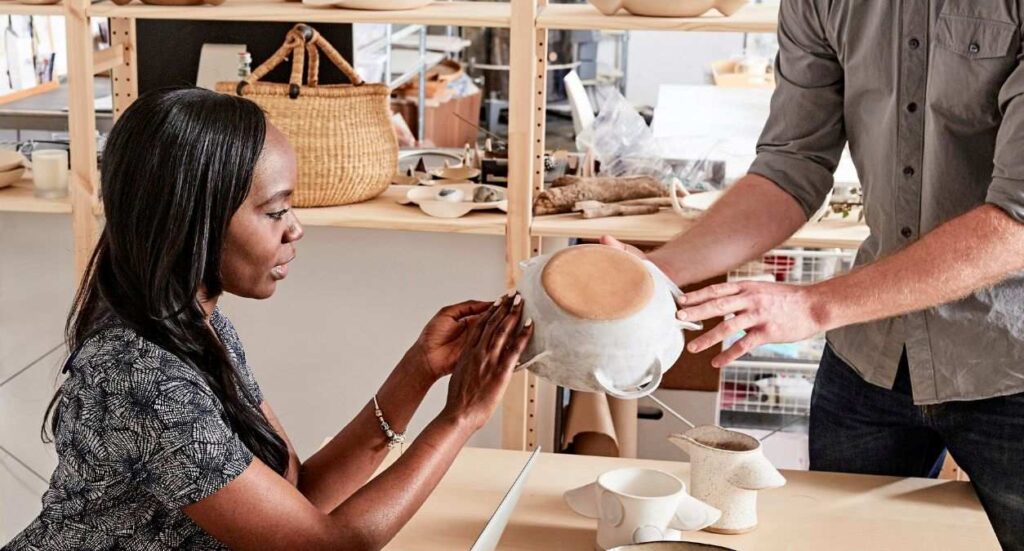
A sturdy, wipe-clean table is your best friend. Many potters cover a workbench or old kitchen table with canvas or heavy-duty plastic to make it clay-ready. You’ll also want a wedging board – a flat surface for kneading and de-airing your clay.
For a DIY option, cover a piece of plasterboard with canvas for a simple and effective wedging setup.
Useful add-ons for growing studios
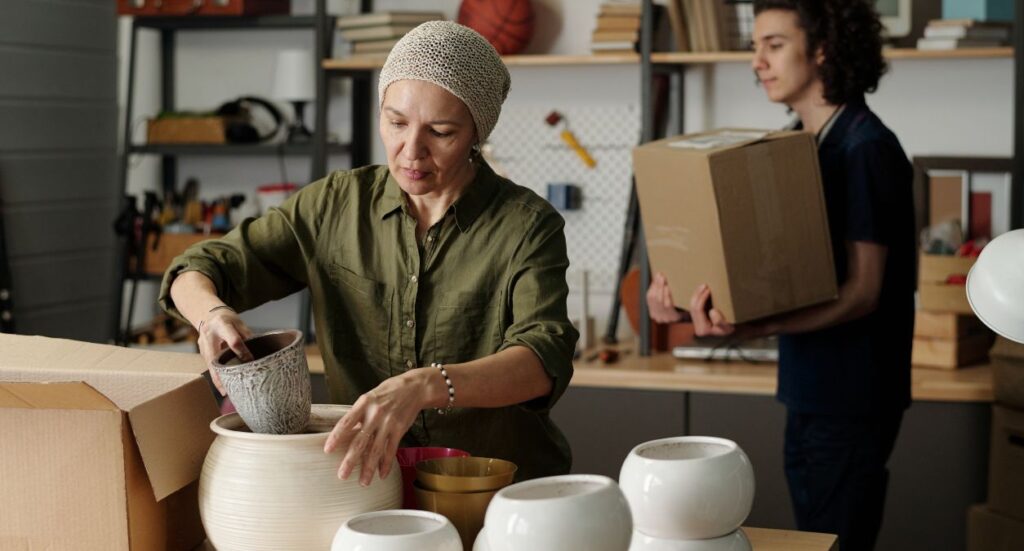
As your business expands, you might find it helpful to invest in:
- Slab roller – for creating consistent clay sheets
- Extruder – perfect for making handles or decorative coils
- Bat system – helpful when throwing multiple pieces on the wheel
- Dust masks or respirators – to protect against fine silica particles
- Shelving – for drying, glazing, and storing finished products
None of these are strictly necessary when you’re starting, but they can streamline your workflow and save time.
How much does it cost to set up a pottery studio in the UK?
Let’s talk numbers. Here’s a general idea of startup costs if you’re building a small home studio:
| Equipment & Materials | Estimated Cost |
| Electric kiln | £1,500 |
| Pottery wheel | £500 |
| Starter tool kit | £30–£50 |
| Clay and glazes (initial) | £150 |
| Table and wedging board | £100 |
| Storage and shelving | £150–£200 |
| Safety gear | £50–£100 |
| Total setup cost | £2,500–£3,000 |
This estimate can vary widely depending on whether you buy new or second-hand, work from home, or rent a studio space.
Turning your pottery into a business
Once you’re equipped and creating, it’s time to look at how to turn your craft into a business.
Registering your business
Start by registering with HMRC as a sole trader or limited company. Keep good records of all income, expenses, and inventory.
Selling your work
There are many routes to selling handmade ceramics:
- Online platforms like Etsy or Folksy
- Social media marketing via Instagram, Pinterest, or TikTok
- Local craft fairs, markets, and galleries
- Your own website for direct sales
High-quality photography, storytelling, and customer reviews can go a long way in helping your work stand out.
Pricing your pieces
Take into account:
- Cost of materials
- Your time
- Energy use (especially kiln firings)
- Studio and packaging expenses
- A reasonable profit margin
Many potters price mugs around £20–£30, depending on craftsmanship and branding.
Get insured
Insurance is often overlooked by creatives, but it’s crucial if you’re selling work to the public, teaching workshops, or exhibiting. A specialist provider like Protectivity’s Crafters Insurance offers tailored cover for potters and makers.
Looking for inspiration or next steps? Browse courses, ideas, and expert tips at:
Starting a pottery business in the UK doesn’t have to be overwhelming. With the right tools, a functional space, and a little business know-how, you can turn your passion for clay into a rewarding creative career.
Remember, you don’t need to buy everything at once. Start with the basics, build your skills, and upgrade as your confidence and customer base grow.
Get Ceramic & Pottery Making Business Insurance from Protectivity
*Disclaimer – This blog has been created as general information and should not be taken as advice. Make sure you have the correct level of insurance for your requirements and always review policy documentation. Information is factually accurate at the time of publishing but may have become out of date.
Last updated by




